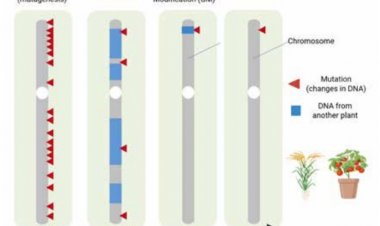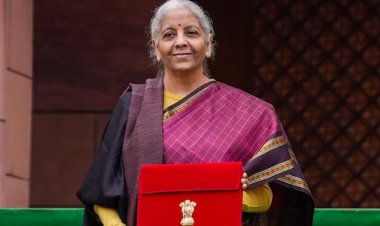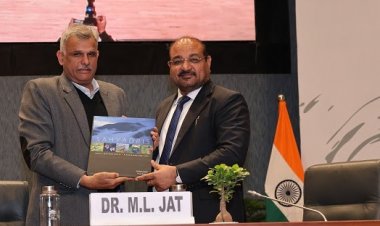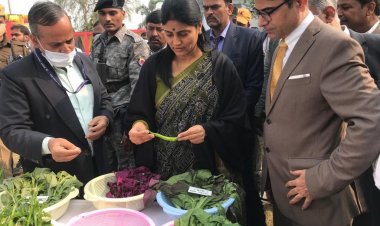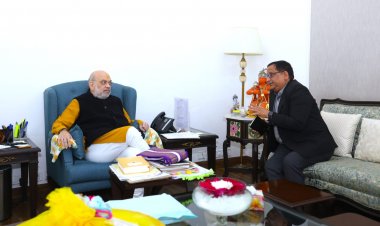WHY DO THE NEW FARM LAWS AGITATE FARMERS
It appears beyond anybody’s comprehension how the recently enacted three union farm laws could trigger farmer’s agitation on a scale which is unprecedented in India’s recent history. Thousands of farmers are agitating in various borders of Delhi, for the past of four months, to demand repeal of the new laws
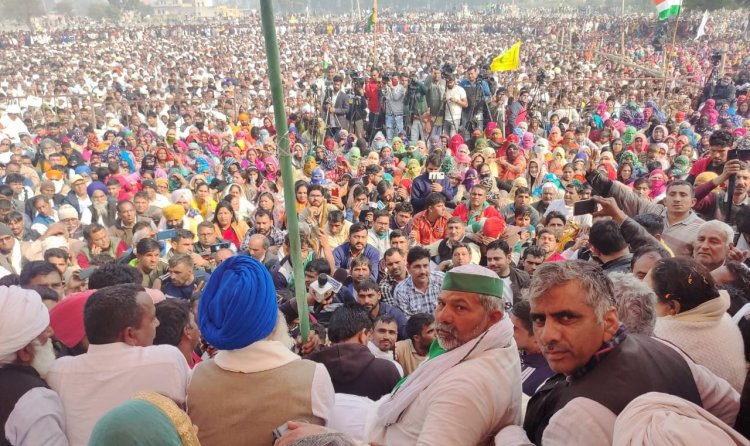
It appears beyond anybody’s comprehension how the recently enacted three union farm laws could trigger farmer’s agitation on a scale which is unprecedented in India’s recent history. Thousands of farmers are agitating in various borders of Delhi, for the past of four months, to demand repeal of the new laws, namely i) Farmers’ Produce Trade and Commerce (Promotion and Facilitation) Act, 2020, (ii) Farmers (Empowerment and Protection) Agreement on Price Assurance and Farm Services Act, 2020 and (iii) Essential Commodities (Amendment) Act, 2020. There were token protests in other places in the country as well.
While the Government claims that the new farm laws have been enacted with good intention of liberating farmers from exploitation by traders and commission agents in APMC mandis (regulated markets), the agitating farmers apprehend that these laws will lead to collapse of APMC mandis as well as minimum support prices and also pave the way for corporatisation of agriculture, thereby threatening their land, livelihood and income security. However, the potential gains and threats from implementation of the three union farm laws, which broadly relate to the on-going process of agricultural marketing reforms, seem to have been exaggerated.
Experience of State Initiated Reforms
During the past one and a half decade, many Indian states have adopted model Agriculture Produce Marketing Committee (APMC) Act, 2003 with modification and reformed their agricultural marketing systems either fully or partially. States such as Andhra Pradesh, Arunachal Pradesh, Assam, Goa, Gujarat, Himachal Pradesh, Jharkhand, Karnataka, Maharashtra, Rajasthan, Sikkim, Tamil Nadu, Punjab and Tripura have removed legal restriction on setting up of private market yards and farmers’ market and allowed direct purchase from farmers by processors, exporters and other bulk buyers as well as contract farming. Several states including Andhra Pradesh, Chhattisgarh, Goa, Gujarat, Haryana, Himachal Pradesh, Jharkhand, Karnataka, Madhya Pradesh, Maharashtra, Rajasthan, Sikkim and Tamil Nadu have legally permitted e-trading within state, aside from 585 wholesale markets being electronically linked under e-Nam as a move towards one nation – one market. In addition, some states have either deregulated the purchase and sale of fruits and vegetables or exempted market fee on them.
Of course there are gaps in the above mentioned reforms in several places which need to be bridged. But the already implemented reforms have not in any way affected the interests of farmers adversely. It is also important to note that there was no agitation by farmers against any such reforms anywhere in the country. At the same time, the said reforms neither freed the farmers from exploitation by middlemen nor led to corporate takeover of agriculture, as it is apprehended by farmers.
Likely Impact of the New Laws
The new union farm laws, if implemented, can have value addition by removing inter-state and intra-state trade barriers outside the APMC mandis, ending restriction on stock holding of essential commodities by food processors, exporters and other bulk buyers and providing a legal framework for contract farming anywhere in the country without restriction. These can help in terms of ease of doing business by processors, exporters, wholesalers etc and also widen farmers’ market access.
However, there should be no illusion that private traders outside the APMC mandis will exploit the farmers less and give them remunerative price for their produce. In an unregulated and oligopsony market situation, there may be more cartelisation and less competition among traders, resulting in lower prices of farm produce. Even in e-trading, the role of middlemen could not be eliminated so far. The bulk buyers of agriculture produce situated at a long distance depend on local traders for quality assaying. Moreover, in the country’s underdeveloped regions, no organised private trade takes place because of locational disadvantages. What farmers need in underdeveloped areas are adequate number of physical market yards within a reasonable distance, all weather roads, transportation services, banks, warehouses and cold storage facilities, along with upgradation of the existing 22000 rural haats and their integration with wholesale regulated markets. Unless these concerns are addressed, there is no way farmers’ share in consumers’ rupee can be substantially enhanced. For example despite abolition of APMC regulation in Bihar in 2006, there is no proper marketing and post-harvest infrastructure and consequently farmers continue to get lower price for their produce
At the same time, increased private corporate investment in agriculture would be crucial for development of infrastructure such as warehouse, cold storage, market yards and transportation facilities, aside from investment in agro-processing and other industries and exports. It will help improve farmers’ access to market, ensure higher prices for their produce and also create jobs in rural areas. What is important is their partnership in business with farmers, farmers’ cooperatives and producers’ organisations. Presently, the private corporate investment accounts for hardly 2.3 percent of total investment in agriculture, the main reasons being lack of appropriate policy environment and good governance.
Moreover, contract farming is often misunderstood as corporate farming. Under contract farming, farmers’ right of ownership and cultivation of land remains fully protected as the new law also clearly lays down. However, farmers can get a better deal through contract farming when there is competition for procurement instead of monopsony and when farmers are organized along cooperatives, self-help groups or farmer producer organizations and have access to reliable market information. Besides appropriate legal and institutional framework for enforcement of contracts would be crucial. It should be different from the way contract farming in basmati rice and tomato was tried in Punjab and sugarcane contracts, though legal are not enforced in Uttar Pradesh.
Furthermore, some economists wrongly argue that APMCs had shackled the Indian farmers, forcing them to sell their produce only in APMC mandis, at low prices. The available NSSO data suggest that even in the case of major crop like kharif paddy only 29 percent of the total quantity sold was through mandis, while 49 percent was sold to local private traders and input dealers at lower prices. Cooperative and Govt. agencies accounted for 17 percent of the total quantity of kharif paddy marketed.
Root Causes of Agitation
It should be recognised that the farmers’ present agitation is not necessarily due to the wrongly perceived threat of corporatisation of agriculture. Aside from politics, it is rooted in the falling profitability of agriculture as well as high expectation created by the Union Government that farmers’ income will be doubled by 2022-23 over the base year 2015-16. Also the benefits of new minimum support prices based on A2+FL cost plus 50 percent margin do not reach all farmers for all crops in all regions, while deficiency price payments as promised in the Union budget of 2018-19, has not yet been comprehensively implemented. A legal guarantee of minimum support price for all crops is one of the key demands of agitating farmers, although Government does not have either financial resources or physical and administrative infrastructure to procure all marketable agricultural produce at the existing support prices. Besides, such wide ranging procurement policy will be questioned at the WTO because of its trade distorting nature. Hence arises the need for greater private sector participation in agricultural marketing.
In addition, there is an issue of non-payment of agreed, albeit statutory cane price in time by sugar mills. Moreover even diversification towards horticultural crops in many places has not proved beneficial for farmers due to frequent market failure. Unless these concerns are addressed, farmers may continue to be agitated.
Conclusion and Way Forward
To conclude, the three new union farm laws are not likely to affect the interest of farmers adversely. Therefore, there is no reason why farmers should agitate against a ghost enemy which does not exist. At the same time, one should not expect miracle or revolutionary impact of the new laws, unless accompanied by other reforms, such as legalisation of land leasing, upgradation of rural haats and their integration with wholesale markets, increased flow of institutional credit, coupled with regulation of informal money lending and a new framework for minimum support price involving deficiency price payment or farm income insurance combining MSP and crop insurance which will be less market distorting and more farmer friendly. But prolonged agitation by farmers is harmful for all. Hence Government must find ways to end the agitation. It can even consider amending the laws suo-moto, if that helps end agitation.
The key amendments should provide for a) uniform regulatory mechanism for trade within APMC mandi and outside, b) duly fixed MSP as the base or reference price for fair average quality of produce, within and outside APMC, including under contract farming, along with the provision of deficiency price payment by Government, c) prevention of cartelisation by traders including corporate, d) improved enforcement and dispute settlement mechanisms and e) availability of reliable price and market information. Unfortunately, the issue has been so much politicised now that Government may fear to propose any new albeit well meaning reforms in agriculture.
(Dr. T. Haque is the former Chairman, Commission for Agricultural Costs and Prices, Govt. of India and Ex-chairman, Land Policy Cell, NITI Aayog. Currently, he is Distinguished Professor, Council for Social Development, New Delhi and Chairman, Centre for Agriculture Policy Dialogue, New Delhi)



 Join the RuralVoice whatsapp group
Join the RuralVoice whatsapp group



















